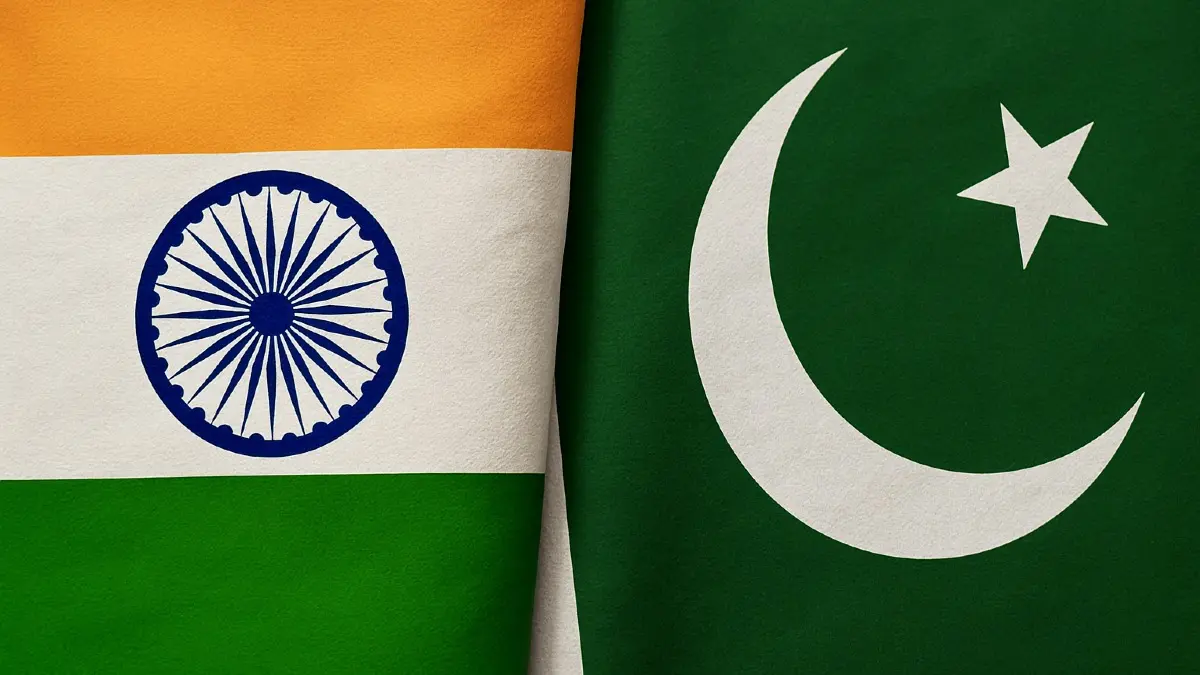Updated 9 May 2025 at 18:51 IST
India Surges Ahead in Tech Race as Pakistan Struggles Without 5G Amid Rising Economic Challenges
Pakistan lacks significant national innovation milestones. India's startup scene is thriving as well. It has more than 159,000 registered companies and 115 unicorns among the top worldwide innovation centres. Pakistan lacks significant national innovation milestones. India's startup scene is thriving as well. It has more than 159,000 registered companies and 115 unicorns among the top worldwide innovation centres.
- Tech News
- 4 min read

As tensions escalate along the India-Pakistan border, the technological gap between the two South Asian rivals is becoming increasingly stark. While India deepens its 5G infrastructure and grows its digital economy, Pakistan finds itself technologically hamstrung—it has yet to roll out 5G commercially, even as the globe addresses the dawn of 6G research.
According to data from the Department of Telecommunications (DoT), India started its 5G services in October 2022 and by early 2024 had achieved nationwide 5G coverage, reaching over 97% of its population. Rapid rollout was led by telecom giants like Reliance Jio and Bharti Airtel using indigenous technology, AI-supported network optimisation, and a large fiberisation drive. With more than 240 million 5G subscribers, India now ranks among the largest 5G markets worldwide.
In comparison, Pakistan has not formally roll out 5G despite ongoing delays and pilot tests going back to 2020. The commercial 5G debut, according to Pakistan's Ministry of Information Technology and Telecommunication, is now postponed until at least Q4 2025; a timeframe that keeps slipping because of a mix of spectrum allocation problems, regulatory red tape, and inadequate infrastructure. This postponement points to more profound structural problems.
At $254 billion in FY24, India's tech sector was enormous compared to only $3.2 billion in Pakistan, a gap of almost 79 times. India's workforce supports this strength: annually, about 1.5 million engineering graduates and 5.8 million IT workers. With only approximately 600,000 IT workers and roughly 50,000 engineering graduates produced each year, Pakistan lags far behind the size required to compete regionally, let alone globally.
Advertisement
India's worldwide influence is just as important. Indian-origin CEOs, including Sundar Pichai at Google, Satya Nadella at Microsoft, Shantanu Narayen at Adobe, and Arvind Krishna at IBM, are some of the biggest technology heads in the world. Sadly, Pakistan has not yet witnessed any person or business attain such a worldwide reputation or impact in the ICT sector.
When it comes to accomplishments, India has surpassed not only digital connectivity. Its Chandrayaan-3 mission made it the first nation to land close to the south pole of the Moon. Costing around $74 million, Mangalyaan was among the most affordable space missions ever undertaken. Digital services such as UPI handled more than 18.3 billion transactions in March 2025 by themselves. Aadhaar, the national biometric ID system, now has more than 1.38 billion people.
Advertisement
In contrast, apart from several mobile wallets like JazzCash and Easypaisa, Pakistan lacks significant national innovation milestones. India's startup scene is thriving as well. It has more than 159,000 registered companies and 115 unicorns among the top worldwide innovation centres. With around 16,000 businesses and no unicorn, Pakistan lags far behind. Rankings reveal the same: India ranks 39th on the Global Innovation Index while Pakistan is 91st. In patents filed and ease of doing business, India also outperforms Pakistan.

While tech layoffs are happening across the globe, workplace instability is a rising problem in Pakistan. About eleven months ago, a Pakistani HR expert wrote on LinkedIn regarding the increase of "silent layoffs" where businesses cut staff discreetly, without official terminations. These strategies involve stopping promotions, lowering wages, and fostering stressful conditions to motivate workers to depart freely. The article struck a chord with many and highlighted significant issues with corporate Pakistan's job security and openness, not only in technology but in all industries.
All things considered, India's tech ecosystem is expanding in every direction: infrastructure, education, worldwide leadership, creativity, and entrepreneurship. Though there have been multiple promises, Pakistan lags far behind because of sluggish policy implementation, underinvestment, and systematic problems. India's digital supremacy offers a modest but strong edge that cannot be overlooked as both nations confront military and diplomatic arenas.
Published By : Priya Pathak
Published On: 9 May 2025 at 18:51 IST
